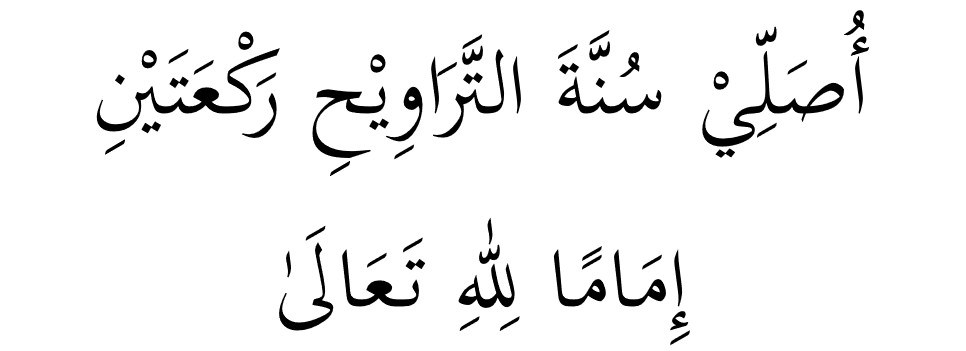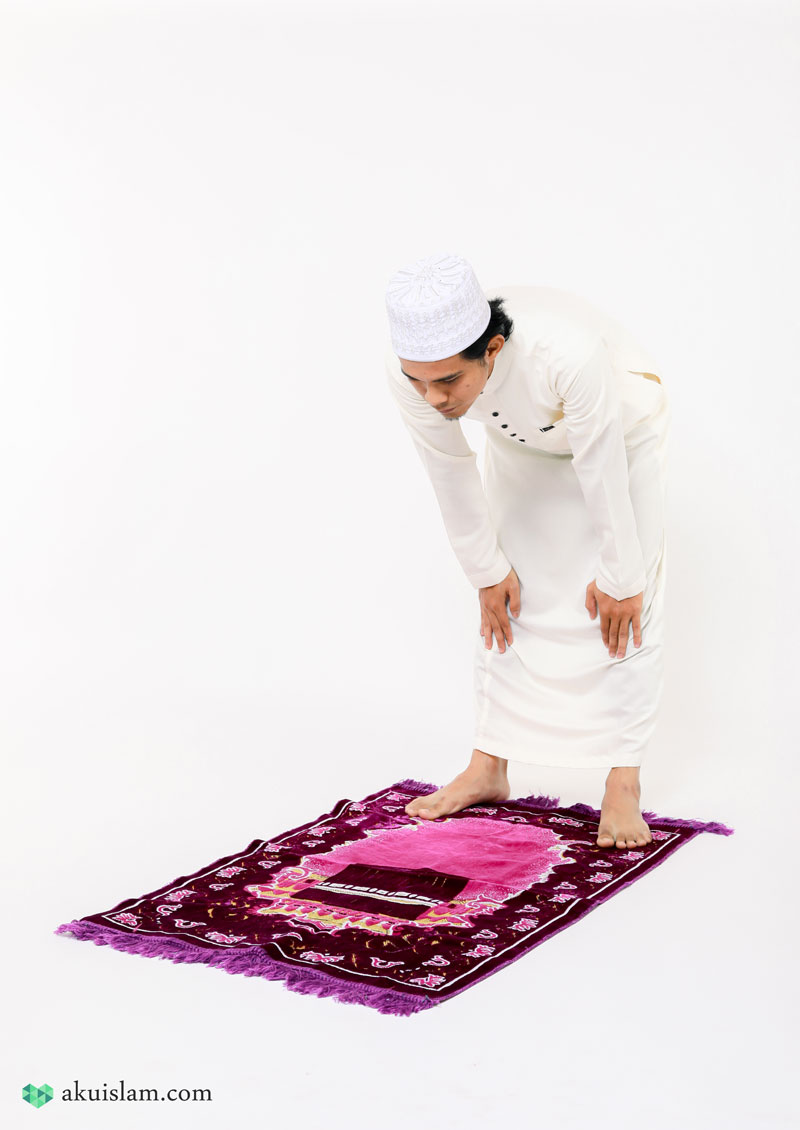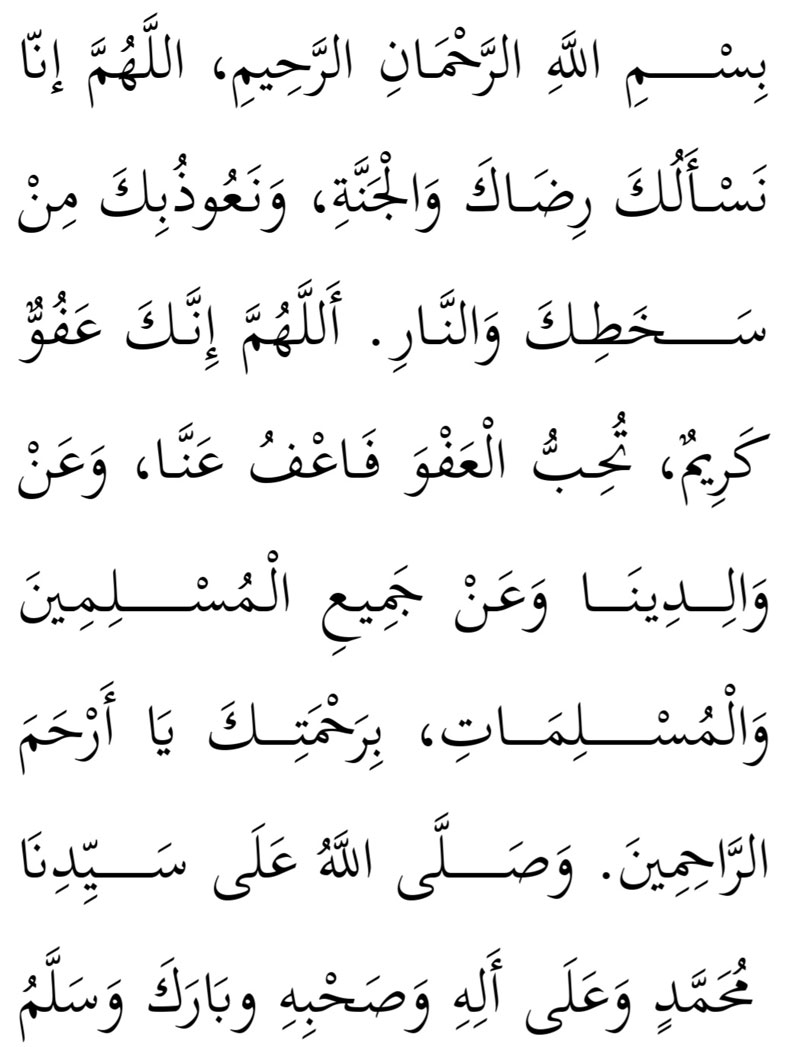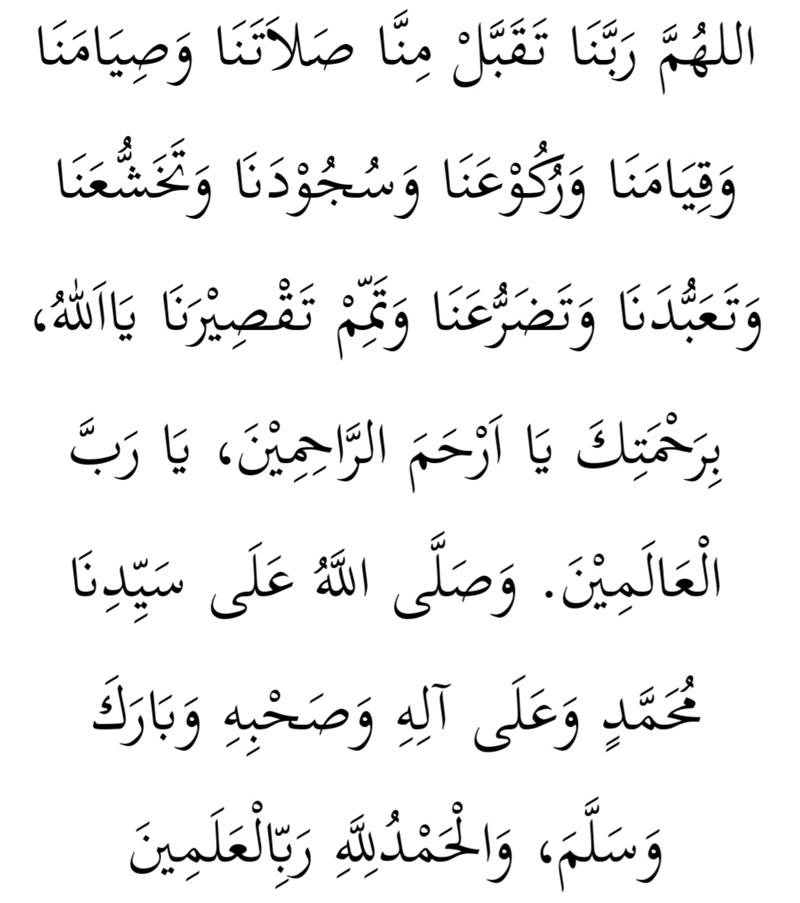
How to perform Taraweeh Prayer at home?
This is a complete guide to perform Taraweeh Sunat Prayers.
You will be guided step by step until it is completed, and this guide is summarized to make it easy for everyone to understand.
What is interesting:
This guide on how to pray Taraweeh is also simplified with English transliteration to help anyone reading Arabic writing.
If you need this guide, let’s get started.
- Introduction
- The meaning of Taraweeh
- Why Should You Perform Taraweeh?
- Time Of Taraweeh Prayer
- The Taraweeh Rak’ahs
- Niyyah Of Taraweeh
- How To Perform Taraweeh Prayer
- Selection of Surah
- Dua Between Taraweeh (After 4 Rak’ahs)
- Dua After Taraweeh
- Performing Sunnah Witr Prayer After Taraweeh
- Closing Dua
- Advantages of Performing Taraweeh
- Closing: May Ramadan Be The Best Month For Us
Introduction
What is special about Taraweeh Prayer?
Taraweeh prayers are more special than other sunnah prayers because it is dedicated to being performed in Ramadan, the month in which there is one night that is a thousand times greater than the other thousand months.
The night is known as Lailah al Qadr.
Allah SWT promises a special reward in the form of forgiveness to those who perform this prayer.
Performing Taraweeh prayers is one of the practices that are so demanded (sunnah muakkadah) in the month of Ramadan.
It can be done alone at home or in the congregation at the mosque.
The meaning of Taraweeh
Taraweeh comes from the word (تَرْوِيحَة) which means rest.
It is called Taraweeh prayer because the person who prays tarawih rests every four rak’ahs.
So this prayer is performed alternately with ‘rest for a while’.
As stated by al-Syarbini in his book al-Iqna ‘:
- “And every four rak’ahs is called tarwihah (تَرْوِيحَة) because they rest after it”
- There is also an opinion that states that this tarawih is derived from the word murawahah (مُرَاوَحَة), which means repetition in deeds.
The purpose of taking a short break is to gain sincerity and give peace to those who pray, especially to the elderly, while avoiding body tension after iftar.
Why Should You Perform Taraweeh?
Taraweeh prayer is a sunnah muakkadah’s prayer that is very much demanded in Islam.
It is only performed during the month of Ramadan only.
Rasulullah SAW strongly encouraged his companions and ummah to pray on the night of Ramadan.
From Abu Hurairah RA that Rasulullah SAW has said:
Whoever performs the night prayer (Taraweeh) in Ramadan because of faith and expects the pleasure and forgiveness of Allah alone, then all his past sins are forgiven.
– Hadith narrated by Muslim
The Taraweeh prayer is a part of qiamullail that is highly encouraged during Ramadan. Thus, the Prophet called it “Qiam of Ramadan”.
It is so special that God promises the reward of forgiveness to those who do it.
Time Of Taraweeh Prayer
The time to perform the Taraweeh prayer is after the Ba’diyyah’s Isya’ Prayer until dawn.
This prayer should be performed with two rak’ahs and one salutation (salam).
Dr. Wahbah Al-Zuhaily in al-Fiqh al-Islamiy wa Adillatuhu states that the rak’ahs of Tarawih rak’ahs are makruh to interspersed with other sunnah prayers except for tawaf prayer.
It is encouraged to perform this sunnah prayer in the mosque’s congregation because the reward is so great.
The Taraweeh Rak’ahs
What is the number of rak’ahs of Taraweeh Prayer?
There are several different opinions in terms of the number of rak’ahs of Tarawih prayers, as follows:
- 8 Rak’ahs
- 20 Rak’ahs
- 36 Rak’ahs
Rasulullah never set the number of rak’ahs to be performed.
Taraweeh sunnah prayers are additional acts of worship performed in a calm and unhurried manner.
It is a way to show sincerity, devotion, and obedience to Allah SWT.
Therefore, Rasulullah SAW ordered it to be done according to ability, sincerity, and willingness.
If you cannot do 20 rak’ahs due to work or health, then 8 rak’ahs are enough.
After that, Sunat Taraweeh Prayer will end with Witr Prayer.
The number of rak’ahs of the Taraweeh Prayer that Rasulullah SAW usually performs is 11 rak’ahs; it consists of 8 rak’ahs of Taraweeh and 3 rak’ahs of Sunat Witr Prayer.
Most Malaysian (and entire south east asean) Muslims choose this number.
Taraweeh Sunat prayers are separated into 2 rak’ahs for 2 rak’ahs (4 times 2 rak’ahs) with every two rak’ahs one salam.
Niyyah Of Taraweeh
Since Taraweeh prayers can be done either alone or in a congregation, then there are 2 expressions of intention that I will explain.
Express your intention to help us when intending to pray (pillars) during Takbiratul Ihram:
The Niyyah to Pray Taraweeh Alone
The intention of the Taraweeh prayers alone is:

Usolli Sunnatat-Tarawih Rak’ataini Lillahi Taala
Meaning:
I pray Sunnah Taraweeh two rak’ahs because of Allah Taala.
The Niyyah of Congregational Taraweeh Prayer (Makmum)
Suppose you want to pray in a congregation with the family.
In that case, the intention of the Taraweeh Prayer at home in a congregation (as a makmum) is as follows:

Usolli Sunnatat-Tarawih Rak’ataini Makmuman Lillahi Taala
Meaning:
I pray Sunnah Taraweeh two rak’ahs as a makmum because of Allah Taala.
The Niyyah of An Imam
The intention as an Imam is as follows:

Usolli Sunnatat-Tarawih Rak’ataini Imaman Lillahi Taala
Meaning:
I pray Sunnah Taraweeh two rak’ahs as an Imam because of Allah Taala.
Therefore, if you want to perform prayers for eight rak’ahs, you should read the intention four times.
You should read the intention in every takbir.
How To Perform Taraweeh Prayer
The way of Taraweeh prayers is the same as the basics of obligatory prayers or other sunnah prayers.

If there are some additional readings between these Taraweeh prayers, it is not a pillar or condition.
But it is just only to take the opportunity to increase the remembrance, tasbih, Salawat, and prayers in the glorious month of Ramadan.
Selection of Surah
There is no particular setting for surahs that need to be read in Taraweeh prayers.
You can read any of your favorite surahs that you remember.
Dua Between Taraweeh (After 4 Rak’ahs)
After completing 4 rak’ahs, we will read the dua first before doing the last 4 rak’ahs.
The prayer is as follows:

Allahumma inna nas aluka ridho ka wal jannah wa na u’zubika min saKhoTika wannar.
Allahumma innaka affuwwu karimun tuhibbul afwa fagfu anna wa an waa lidinaa wa an jami’il muslimina wal muslimat, birahmatika ya arhamarrohimin.
Wasollollah ‘ala sayyidina muhammadin wa ‘ala Alihi wasohbihi wabaroka wasallam
Meaning:
In the name of God, Most Gracious, Most Merciful, may we have Your pleasure and Your heaven, and may We seek refuge in You from the wrath and fire of Your hell. O Allah, You are the Most Forgiving, the Most Merciful, the Most Protecting, so forgive us, our parents, and all Muslims, for The sake of You who is Most Merciful and Most Compassionate. Blessings from Allah to our leader Prophet Muhammad, his family, his companions, and his blessings and peace.
Dua After Taraweeh
After completing the last Taraweeh prayer, read this dua.
This prayer is also known as Kamilin Dua.
(You can play audio to aid reading. English transliteration is also available)

Bismillahirrahmanir rahim.
Alhamdulillahi rabbil alamin. Wassolatu wassalamu ala sayyidina muhammadin wa ala Alihi wasohbihi ajmain, Allahummaj ‘alna bil imani kamilin, walifara idhika muaddin. Wa lissolati haafizin. wa lizzakati faa ilin, wa limaa ‘indaka tholibin, wa li ‘afwika raajiina wa bil hudaa mutamassikiin.
Wa anil laghwi mu’ridhiin. Wa fiddunya zaahidin. Wa fil aakhirati ra ghibin. Wa bil qadaa i raa dhiin. Wa binnu amaa i syaakirin. Wa alal balaa ya saabiriin. Wa tahta liwaa i sayyidinaa muhammmadin sallaahu alaihi wa sallama yaumal qiyamaati saa iriin. Wa ilal haudhi waaridiin. Wafil jannati daakhiliin.
Wa Alaa sariiratil karaa mati qaa idiiin. Wa bihuurin linim mutazawwajiin. Wa min sundusiw waistabraqiw wadiibaajim mutalabbisiin. Wa min to aamil jannati aa kilin. Wa mil labaniw wa asalim musoffaini syaaribiin. bi akwaa biw wa abaariiqa wakaksim mimma ‘in. ma Allaziina an amta alaihim minan nabiyyiina wassiddiiqiina wasy syuhadaa iwassoolihin.
Allahummaj ‘alna fii haazihil lailatisy syahrisy syariifatil mubaarakati minassu Adaail maqbuuliin. Wa alaa taj ‘alnaa allaahumma minal asy qiyaa ilmarduudiin. ilaahana Aafinaa wa’fu annaa waghfir allaahumma lanaa. waliwaalidiina wali ummahaatina wali ikhwaaninaa wali akhawaatinaa wali azwaajinaa wali ahliinaa wali ahli baitinaa
wali ajdaadinaa wali jaddatinaa wali masyaa ikhinaa wali mu allimiinaa, wa jamii il muslimiina wal muslimaati wal mukminiina wal mukminaat., al ahya i minhum wal amwaat.
Waktubillahummas-salaamata wal aafiyata alai na wa alaa abiidikal hujjaaji wal ghuzaati wazzuwaar, wal musaafiriina wa muqiimiina fil barri wal bahri minal muslimin.
Waqinaa syarrazh zholimin. Wan surnaa alal qaumil kaafiriin, ya mujiibassaa iliin. Wakh tim lanaa yaa rabbanaa minka bikhairiyyaa arhamar raahimin,
Wassollahu ‘ala khairi kholqihi muhammadin wa ‘ala Alihi wasohbihi wassallam. Walhamdulillahi robbil Aalamin.
Meaning:
Praise be to Allah, the Lord of the worlds, as praise that perfects His favors and increases its increase.
O our Lord, praise You as He deserves and then Your Essence and the greatness of Your rule. Blessings and peace be upon the Revered Prophet Muhammad and his family and friends.
O Allah O our Lord, make our faith a perfect faith. We perform all the zakat obligations and everything that is on Your side we ask for, and We hope for Your forgiveness.
We adhere to Your guidance and stay away from useless things, asceticism with the world and the love of the hereafter, satisfied with Your provisions, grateful for Your favors, and patient with calamities.
We take refuge under the banner of the Prophet Muhammad the next day, we seek Your protection and can enter Your Paradise and sit on a glorious bed (in heaven), marry angels and wear ornaments in heaven, eat food in Paradise, drink pure milk and honey from beautiful glasses with those whom You have bestowed favors from the group of prophets, apostles, martyrs and the righteous.
O Allah, make us on this glorious and blessed night from people who are happy because their deeds are accepted, and do not make us people who are sad because our deeds are rejected.
O our God, bless us and give us goodness, O our God, forgive us, our parents, our brothers, our husbands / wives and our teachers and those we teach, and those who have rights over us , and those who love us and do good to us, and those who guide us and those whom we guide to goodness, and those who testify to us and whom we testify with prayer, and all Muslims.
And O Allah, write security and forgiveness for us and on Your servants consisting of pilgrims for Hajj and Umrah, traders, pilgrims, travelers, and settlers, on land or at sea from Muslims.
And keep us away from the wrong-doers, and help us face the disbelievers, O Allah who grants the beggars.
And perfect for us, O our Lord from You with goodness, O Most Gracious God of all that is merciful.
Blessings and peace be upon the best of events, Prophet Muhammad and upon his family and Companions. All praise be to Allah, the Lord of the worlds.
Performing Sunnah Witr Prayer After Taraweeh
The witr prayers usually will be established after completing Taraweeh prayers.
Witr prayers are performed at least one rak’ah, at least for a perfect limit is three rak’ahs (two salutations).
Niyyah For Witr
Since the Witr Prayer is performed in 3 rak’ahs with 2 salutations (salam), we need intention (niyyah) 2 times.
1. The intention of Witr Prayer First 2 Rak’ahsFor the first two rak’ahs of witr prayer, the intention is:

Usolli Sunnatal Witri Rak’ataini Lillahi Ta’ala
Niyyah in English:
I pray sunnah witr two rak’ahs because of Allah Ta’ala
2. The intention of Witr Prayer Last 1 Rak’ahs
For the last part of the witr prayer, the words of intention are:

Usolli Sunnatal Witri Rak’atan Lillahi Ta’ala
Niyyah in English:
I pray sunnah witr one rak’ah because of Allah Ta’ala
For a better understanding of witr prayers, I recommend that you look at this Witr Prayer Guide.
Closing Dua
After completing Witr, the read the closing dua
Below is the text for the closing dua.

Allahumma Rabbana Taqabbal Minna Solatana Wasiyamana Waqiyamana Waruku Aana Wasujudana Wata Khosyu Aana Wata Aabbu Dana Wata Dorru Aana Watammim Taksii Rana Ya Allah, Birahmatika Ya Arhamarraa himin, ya rabbal aalamin.
Wasollallahu ‘ala sayyidina muhammadin wa ‘ala Aalihi Wasohbihi Wabarik Wasallam, Walhamdulillahi Rabbil ‘Alamin.
Meaning:
O God, our God, accept our prayers and fasting, our prayers, our prayers, our prostration, our worship, our honor, and our fatigue, and our hardships, with Your mercy, have mercy on us, O God of the worlds. And the blessings and peace of Allah be upon our leader Prophet Muhammad, his family, his companions, and blessings and peace, and all praise be to Allah, the Lord of the worlds.
With that, the Taraweeh prayers for the night were completed.
May you be blessed in the glorious month of Ramadan.
Advantages of Performing Taraweeh
From Abu Hurairah RA that Rasulullah SAW has said:
Whoever performs the night prayer (Taraweeh) in Ramadan because of faith and expects the pleasure and forgiveness of Allah alone, then all his past sins are forgiven.
– Hadith narrated by Muslim
Closing: May Ramadan Be The Best Month For Us
Ramadan is a great guest.
He came to visit for a month in a year.
He brings us a variety of invaluable gifts that we need to take and appreciate.
Otherwise, we are the ones who lose the most for ignoring that special gift.
Among the special gifts is the double reward for each charity in the month of Ramadan.
Therefore, we need to take this opportunity to implement all the practices this month as best as possible by adding the practice of sunnah, such as reciting the Quran and Taraweeh, to grab the double reward that is only offered in this glorious month.

Tinggalkan Komen Anda..